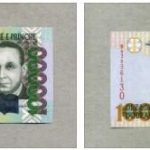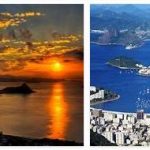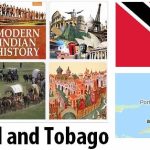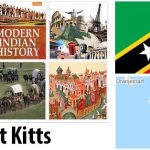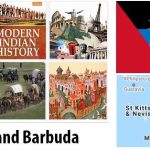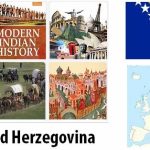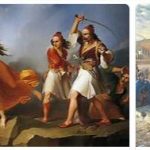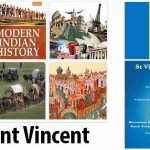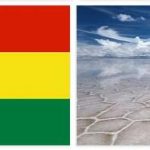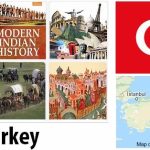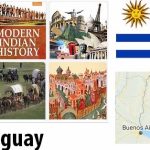Sao Tome and Principe is a country located in Central Africa. With the capital city of Sao Tome, Sao Tome and Principe has a population of 219,170 based on a recent census from COUNTRYAAH. After independence in 1975, President Manuel Pinto da Costa and his party, the Freedom Movement for São Tomé and Príncipe (MLSTP), began to pursue a radical socialist policy.
The regime established economic and military relations with the Soviet Union and its allies, including Cuba, Angola and East Germany. However, trade with Western Europe, especially Portugal, continued to dominate foreign trade.
Under the influence of the powerful “protectors” from the Eastern bloc, the cocoa plantations were nationalized, MLSTP became the only allowed party and all opposition was silenced. The new policy caused divisions within the party. Many of the party members who wished to proceed more cautiously were driven into exile.
- ABBREVIATIONFINDER: List of most commonly used acronyms containing Sao Tome and Principe. Also includes historical, economical and political aspects of the country.
In 1978, rumors of coup attempts appeared, prompting Cuba and Angola, among others, to station soldiers in the country to protect President Pinto da Costa. Several politicians, including the president’s old party mate, Prime Minister Miguel Trovoada, were accused of taking part in the plans for a coup and were sentenced to prison. Check best-medical-schools for more information about Sao Tome and Principe.
The economic situation deteriorated. Cocoa production fell sharply after the nationalization of the plantations, and after 1979 the world market price of cocoa also began to fall. During the first half of the 1980s, the country’s gross domestic product (GDP) steadily declined and in 1985 threatened economic collapse. Instead of renewing the agreements with the eastern countries, Pinto da Costa then sought support in the western world. The government tried to attract investors from the West and launched a cautious privatization. Further reforms to deregulate the economy followed when São Tomé and Príncipe in 1986 embarked on a structural adjustment program in collaboration with the International Monetary Fund (IMF).
At the same time, MLSTP sought reconciliation with the opposition in exile. Among other things, the Constitution was amended in 1987 so that not only the ruling party but also independent candidates could stand in elections to Parliament. However, the reforms were insufficient for the opposition, and in March 1988 an opposition group based in Cameroon made a coup attempt. More than 40 rebels landed in the capital São Tomé and attacked a police station but were themselves arrested.
Transition to democracy
The coup attempt, the economic crisis and growing demands for reform prompted Pinto da Costa to end democratic reforms at the end of 1989. In 1990, the country’s secret police was dissolved, and a constitution that guaranteed multi-party systems and human rights was adopted. The coup makers from 1988 were pardoned and several opposition parties founded. A younger group of politicians broke out of the MLSTP and formed the Democratic Assembly-Reflection Group (PCD-GR). MLSTP marked its new, reform-friendly line by adding to its old name the Social Democratic Party (PSD).
In January 1991, the country’s first general elections to Parliament were held. PCD-GR became the big winner with 54 percent of the vote. MLSTP-PSD came in second place.
In the presidential election two months later, Miguel Trovoada, who had been appointed prime minister in 1979, won.
Trovoada was supported by PCD-GR but the good relationship between the ruling party and the president did not last long. Almost a year after the presidential election, the PCD-GR sought to limit the president’s power through a change of constitution. One of the recurring arguments between the president and the government culminated in a new election in October 1994. The MLSTP-PSD became the largest party and could thus come back to power. Two years later, Trovoada was re-elected president.
In the latter part of the 1990s, dissatisfaction with the austerity policy pursued by the government in cooperation with the IMF and the World Bank grew in exchange for advice and favorable loans. Despite this, the MLSTP-PSD government succeeded in strengthening its position in the 1998 elections and gained its own majority in Parliament.
During the election year, significant oil deposits were discovered in the sea off São Tomé and Príncipe and agreements were entered into with foreign companies wishing to commence extraction.
In the 2001 presidential election, Manuel Pinto da Costa made an attempt to get back into power. However, he lost against the wealthy businessman Fradique de Menezes, who was supported by the outgoing Trovoada and his party ADI.
Turbulent time
Meneze’s time in power (2001–2011) was marked by countless changes of government. Governments were most often dominated by parties in opposition to President Menezes. In Parliament there was a balance between supporters and opponents of the president. The political tug of war between the president and the government was partly about the distribution of power, and partly how the country’s oil industry would be managed.
When President Menezes took office in September 2001, the government was dominated by the old state-backed party MLSTP-PSD. All attempts at cooperation were unsuccessful. Menezes chose to arrange the 2002 parliamentary elections, which should have been held in the autumn. Ahead of the election, a new party, the Renewable Forces Democratic Movement (MDFM), was formed by some defectors from ADI, including President Menezes himself. MDFM entered into an alliance with the Democratic Assembly Party (PCD, formerly PCD-GR). The choice resulted in a balance between MLSTP-PSD and MDFM-PCD. Finally, a unifying government was formed with all parties in the Parliament, that is to say the Alliance Uê-Kedadji, which was dominated by ADI.
The head of government became the ambassador to Portugal, Gabriel Costa, who was supposed to be able to bridge the contradictions within the government. But already after six months, a crisis arose and the entire government was dismissed. When Prime Minister Costa resigned, he criticized President Menezes for breaking the constitution through lack of transparency in negotiations with foreign oil companies. Of other prominent figures, the president was accused of funding his election campaign with oil money.
In October 2002, President Maria das Neves de Souza appointed prime minister for a new unity government. A month later came the next crisis. Parliament then voted for a constitutional reform that limited the president’s power. Among other things, the president’s right to veto constitutional amendments was abolished. In response, Menezes dissolved the parliament and threatened with new elections, but after mediation he agreed to the changes. Parliament, in turn, promised to agree to hold a referendum on the state’s governance within a few years. The referendum, however, never came to fruition.
Short-term coup
In July 2003, a group of officers led by Major Fernando “Cobo” Pereira conducted a coup d’état while President Menezes visited Nigeria. The coup makers captured several ministers and accused the government of corruption. Mediators from Nigeria, among others, persuaded the coup makers to give up, having received a number of demands. The President promised to reform the government, give Parliament transparency in the oil business and create a national forum where representatives from political parties and NGOs would be made public. The conditions of the army soldiers would be improved. After the coup, Menezes also promised in-depth reforms to consolidate democracy and measures to improve the economy, all to regain the world’s faith in São Tomé and Príncipe.
In March 2004, two ministers from the presidential party MFDM were forced to leave the government after being accused of having signed two comprehensive oil agreements without the prime minister’s knowledge. Later, two more MFDM ministers left the government. In September of that year, President Menezes resigned from government after Prime Minister Maria das Neves was indicted for involvement in aid money corruption.
Managing the expected revenue from future oil recovery was an important political issue. Many powerful interests were fought to gain control of the oil. In order to avoid the usual corruption in the state apparatus, in December 2004, a law was passed that would guarantee national and international transparency of the cash flows and ensure that the revenue was used for the benefit of the general public. With the oil money, a fund for the future would be built up.
A new government was added after the Neves government was dismissed. It lasted almost a year, until June 2005, when it debated the question of how a strike among public servants would be handled. Maria do Carmo Silveira, from MLSTP-PSD, was appointed new Prime Minister.
In March 2006, parliamentary elections were held. In four constituencies, voters urged electoral boycotts in protest that politicians had failed to fulfill promises to install electricity, water and other services. Barricades prevented some voters from voting, thus holding re-election in some constituencies. The MDFM-PCD, with close ties to the president, gained a scarce majority and formed a minority government with Tomé Vera Cruz as prime minister.
In the July 2006 presidential election, de Menezes, with the support of the MDFM-PCD, was re-elected for another five-year term with 60 percent of the vote.
In October and November 2007, the police headquarters in São Tomé was occupied by hundreds of members of the elite “Ninja”, trained in Angola. Ninja cops demanded a promised bonus and their own headquarters. The Speaker of Parliament negotiated with the rebels and the government, but it ended with seven rebels being imprisoned. In January, the Supreme Court ruled that the prison lands were illegal and the ninjas were released immediately.
New government is formed
In January 2008, Prime Minister Vera Cruz failed to get through the government budget in the parliaments and therefore resigned. He was succeeded in February by ADI leader Patrice Trovoada, son of former president Miguel Trovoada.
ADI formed a broad coalition government with Trovoada as prime minister but as early as May the government lost a vote of confidence in parliament. President Menezes then wanted to announce new elections, but was forced to back after protests from civil society including the unions. A new election would cost too much, critics said, and would not solve the basic political problems. Politicians should rather agree on a new, broad unity government, they felt.
In June, President Menezes asked the leader of the country’s second-largest MLSTP-PSD party, Joaquim Rafael Branco, to form a new government (MLSTP-PSD was the only major party not a member of the Trovoada government). It became a unity government with ministers from all parties in parliament, except Trovoada’s ADI, which was now the only opposition party.
In December 2008, trials were prepared against several former ministers who were suspected of seizing money from the 1993 established but subsequently dissolved GGA (Gabinete de Gestao das Ajudas). The GGA would manage foreign aid, but about $ 4 million seemed to have gone to government members’ personal expenses. Among the defendants were two former prime ministers: Maria das Neves and Guilherme Posser da Costa. In March 2009, the former director of the GGA was sentenced to nine years in prison and the former chamberlain to seven years for crimes in connection with the embezzlement. The outcome was controversial as the previously suspected ministers were not brought to trial.
Halted coup attempt
In February 2009, the Minister of Justice announced that a planned coup attempt had been prevented. Weapons were found at the home of Arlecio Costa, leader of the opposition party Christian Democratic Front (FDC). Several people arrested along with Costa were said to be linked to the so-called Buffalo Battalion, a South African association of former mercenaries who were also believed to have had a finger in the game at the 2003 coup (see above). In November, Costa was sentenced to five years in prison for his involvement in the coup plans. Another defendant was sentenced to two years in prison, while the other 36 were released. In January 2010, Costa Amnesty was granted by President Menezes. During the trial, Costa had accused the president of fabricating the coup attempt for being both competing businessmen.
Parliamentary elections would have been held in February 2010 but postponed until August of the same year. ADI won and received 26 seats, but that was not enough for the party to gain a majority in the parliament with 55 seats. However, ADI was able to form a government and Patrice Trovoada again became prime minister.
In July 2011, presidential elections were held. Pinto da Costa, who is running as an independent candidate, won 53 percent of the vote.
Pinto da Costa’s victory raised fears of a return to authoritarian rule, even though during his election campaign he assured him that he would not revert to old politics. He promised to work to improve the poor country’s economy, fight corruption and create political stability.

